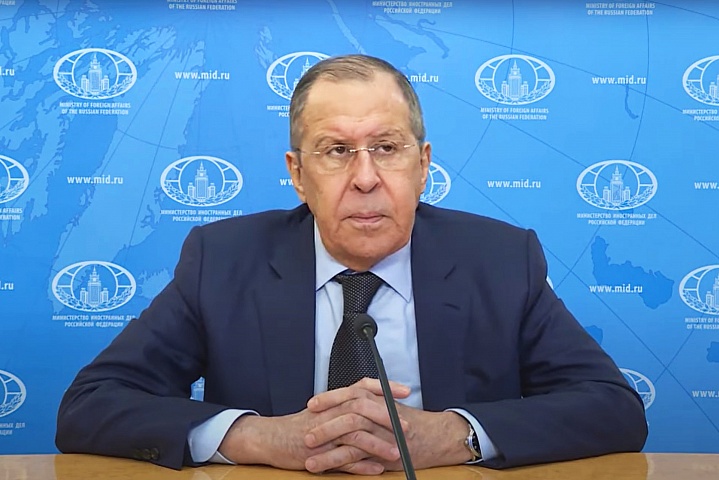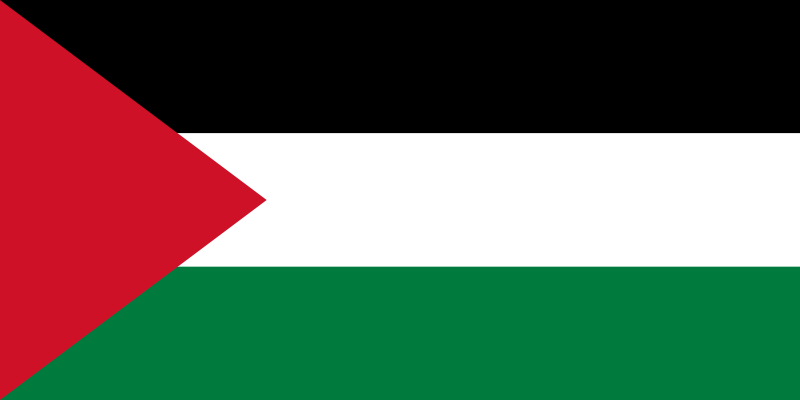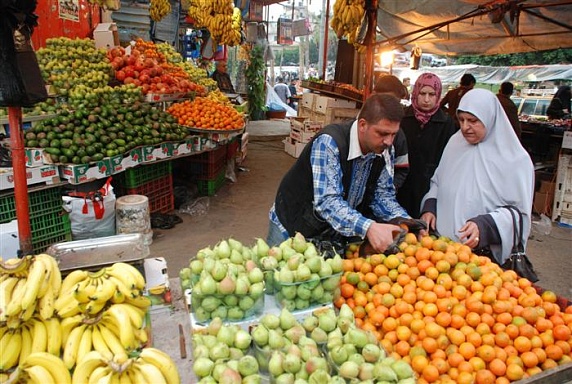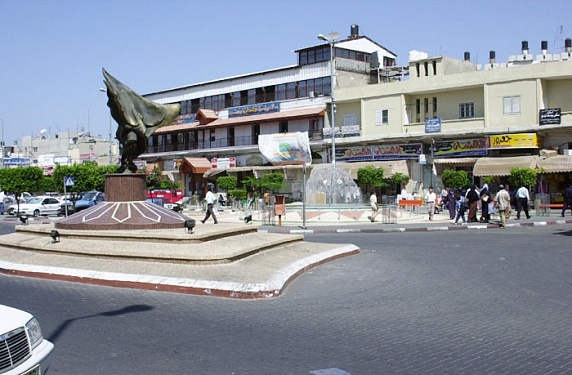 Государство Палестина
Государство Палестина
Foreign Minister Sergey Lavrov’s interview with Egyptian public television channel TeN TV, Moscow, December 14, 2021
Question: What is your view of Russian-Arab relations? What is their current state and how do they differ from the Soviet period?
Sergey Lavrov: Russia’s current relations with all Arab states without exception are based on mutual respect and are developing dynamically. During the Soviet period, we did not have diplomatic relations with some Arab states, although Soviet Russia was the first state to recognise Saudi Arabia. Today all the extraneous features and the ideological prejudices of the past have been removed. We have close economic ties, and we are rapidly developing investment cooperation and humanitarian and education ties with them. I would like to mention the contacts of Russian Muslims, who regularly enjoy Saudi Arabia’s hospitality when they travel there on their pilgrimage to Mecca. We are also collaborating on the international stage.
I would like to say that we have an opportunity to take additional action to boost our investment cooperation. The Russian Direct Investment Fund (RDIF), which was created several years ago at President Vladimir Putin’s initiative, has established joint platforms with several Arab countries, primarily the Gulf states, and is implementing ambitious projects in energy, aircraft manufacturing, space exploration and other high-tech sectors. The construction of Africa’s first nuclear power plant, the Russian-designed El Dabaa, will begin in Egypt soon. The UAE is rapidly building up its trade, economic and investment ties with Russia. Our mutual trade is growing at a record pace. Saudi Arabia and Algeria are our leading partners in the Arab world and in North Africa.
Question: We are talking against the background of the Russian-Egyptian Year of Humanitarian Cooperation, which was declared during a meeting held between President of Russia Vladimir Putin and President of Egypt Abdel Fattah el-Sisi in Sochi in 2018. What unites Cairo and Moscow amid the ongoing global changes?
Sergey Lavrov: Indeed, the cross-year of humanitarian cooperation was coordinated by the presidents of Russia and Egypt more than two years ago. We planned to hold it in 2020, but we had to move it to 2021 because of the pandemic. It was officially inaugurated in Cairo in June 2021. The agenda includes over a hundred various events, to be held in our two countries in the fields of culture, science, education, sport, tourism and other humanitarian contacts. A half of the Russian government – the ministries in charge of these cooperation spheres – are involved in these events one way or another. Many of the planned events have been held and have attracted much attention from people in Russia and Egypt.
Our countries have good relations, which date back to the time when the Middle East and North Africa were fighting for their independence and the right to freely choose their development paths. Our relations have seen their ups and downs, but they have now reached a level we have never seen in our history before.
Question: You have mentioned the rapid development of our economic ties, joint efforts to build the El Dabaa Nuclear Power Plant, and the establishment of the Russian Industrial Zone in the Suez Canal Economic Zone. Russian tourists are returning to Hurghada, Sharm el-Sheikh and other Egyptian resorts. Has trade and economic cooperation become the main driver of Russia-Egypt relations?
Sergey Lavrov: Yes, [we are moving forward] by implementing major projects. You mentioned the Russian Industrial Zone. Its potential is huge. It is only being launched, but Russian companies are queuing up for the right to become its residents and to open their facilities there. It is a matter of fundamental importance not only for the Egyptian market. The project has been launched with a view to engaging the entire region. I believe that it will not only promote Russia-Egypt cooperation but will also give a powerful boost to Egypt’s economic growth.
Question: Arab countries are busy with their own problems and crises. We would like to tell them about Russia’s position on these issues. Let us begin with Libya. Are you following the presidential election campaign there? What is your objective?
Sergey Lavrov: Russia has been contributing to the international efforts in support of a settlement in Libya for many years. Our country has become involved in various international formats since the Libyan Political Agreement was adopted in Skhirat in December 2015. They include the conferences in Paris, Palermo and Berlin. Common principles have been coordinated during these events, but they have not been implemented, have not been translated into action.
In November 2020, the Libyan parties agreed, thanks to the efforts of UN coordinators, to restore their state by creating mechanisms to prepare for elections. Transitional structures have been established. Head of the interim government, Abdul Hamid Dbeibah, visited Russia. During the previous stage in the process, we hosted a meeting of the Libyan parties, which was also attended by our Egyptian friends. They helped us and the Republic of Turkey to bring together representatives from the western and eastern parts of Libya.
These efforts, to which Russia has contributed, have helped to launch a generally recognised process, which stipulates presidential and parliamentary elections. The date has been set for December 24. I hope everything will take place as planned. Our priority should not be a formal compliance with the deadline, but a substantive preparation of the elections so that representatives of all the leading political forces take part in them and recognise the election results. I will be frank with you: I see no problem with postponing or rescheduling the election day on the condition that this provision is honoured. The main thing is for all the rough edges, which we have seen during the preparation of the elections, to be removed. I am referring to the inclusive nature of the process and the list of candidates. Attempts have been made at some electoral districts in Libya to prevent some candidates from taking part in the elections. These decisions were later revised. I hope that everyone will be able to participate.
Question: Do you have a definite position with regard to any of the candidates? The United States seems to be clearly dissatisfied with the candidacy of Saif al-Islam Gaddafi, the son of the late Libyan leader Muammar Gaddafi.
Sergey Lavrov: I cannot speak for the Libyan people. The United States has even less right to do so, given that it was involved in destroying the Libyan state in 2011. The then US president, Barack Obama, said the US was attempting to lead “from behind.” It allowed such countries as France to step forward. As it transpires, France had personal accounts to settle with Muammar Gaddafi. I wouldn’t take the liberty and most emphatically recommend that the Americans and Europeans desist from trying to decide the fate of another nation, let alone the Libyan people. Let the Libyans decide it for themselves.
We know that Saif al-Islam Gaddafi and the Gaddafi clan as a whole have a sufficiently numerous support base, as do Marshal Khalifa Haftar, Aguila Saleh, Abdul Hamid Dbeibah, and other participants in the presidential race. We will urge the Libyans to ensure the transparency and purity of the electoral processes and find the courage to accept the choice of their people.
Question: Let me make sure I have got this right: do you believe that the West is to blame for destroying Libya in 2011 and for the Libyans’ suffering over the past ten years?
Sergey Lavrov: This fact cannot be denied. More than that, everyone recognises the presence of another and larger reality: a black hole has emerged in the place of Libya after the West bombed the Libyan statehood out of existence. The militants and extremists whom the West had armed against Muammar Gaddafi poured south through it, which is the main reason why the Sahara-Sahel region has been gripped by years-long crisis. Today, this zone is one of the most dangerous sources of extremist ideology and a physical base for various branches of Al-Qaeda and ISIS. In response, refugee flows headed northward and Europe is now suffering from this exodus and trying to put up a barrier against it. But you have to bear responsibility for your actions.
Question: The threat of terrorism is a serious challenge for the countries of the Sahara-Sahel region. Is Russia trying to help those countries?
Sergey Lavrov: On November 11, I had talks with Foreign Minister of Mali Abdoulaye Diop and on December 7 with Foreign Minister of the Republic of Chad Mahamat Zene Cherif. We maintain close contact with the leadership of the Central African Republic. What they all have in common is the desire to mobilise forces in their fight against terrorism. Branches of Al-Qaeda, ISIS, and Boko Haram have a presence in those countries in one way or another. This situation is spreading already to the Gulf of Guinea and groups of militants start to assemble around Lake Chad. They are making raids from their camps, terrorising the local population and mercilessly exploiting the natural resources of the African countries. Few are able to do anything to them.
We are assisting the G5 Sahel. They are setting up joint forces, which are yet at the stage of formation. We are supplying these countries with the necessary armaments enabling them to strengthen their potential to eradicate the terrorist threat. We regularly train servicemen from those countries in the Russian Federation; we train peacekeepers and law enforcement officers at our Defence Ministry’s educational establishments. The UN Security Council is discussing UN participation in the financial support to the G5 Sahel joint forces. According to the available facts, our Western colleagues are not too enthusiastic about this. Russia is prepared to make a step to let the UN understand the need for a more active and substantive support to the G5 Sahel activities in this area.
Question: Statements by the US armed forces command always contain a warning about the inadmissibility of any Russian military presence in African countries. How do you assess such statements?
Sergey Lavrov: This kind of imperial thinking and lack of respect for other countries is typical of the United States and the way it acts across the globe, not only in relation to Russia, China and others they call their rivals and adversaries. They treat their allies and talk to them the same way. How did they go about the sale of nuclear submarines to Australia? They just did it.
As for their claims of sole control over entire continents, I think that the countries in the region, in Africa and the Middle East, are sufficiently mature states with extensive historical experience to understand how meaningless such statements are.
US military are not the only ones who declared Russian and Chinese presence in Africa unacceptable. For example, Mike Pompeo, who was my colleague when he was Secretary of State, travelled to several African countries shortly before the end of the Trump administration and publicly urged each of them to avoid trading with Russia or China, because according to them, we only trade in order to “colonise” everyone. The Americans, for their part, do this for the sake of strengthening democracy. The meaningless of these anecdotal statements is quite obvious to everyone.
It is not only the Americans who have this feeling of superiority over all others; our European colleagues have this tendency as well. France declares whenever it has the chance that Russia can’t provide military support to Mali – after Mali’s leaders have officially explained their position in sufficient detail. The Prime Minister spoke at the UN General Assembly and expressed concern that, with the terrorist threat not decreasing, but growing, France decided to draw down forces involved in Operation Barkhane. In particular, they have shut down two bases in the north of the country where the situation is most serious; the third is to be closed by the end of the year. In this situation, the Malian authorities have no other choice but seek compensation for France’s moves. Russian Defence Minister Sergey Shoigu and I have recently talked to our French colleagues in Paris in the two-plus-two format. We called on them to eliminate double standards in the fight against terrorism. If we all want to help Africa, we need to do this by combining efforts, not by trying to “fence off” our areas of responsibility, each marking “their” territory, to prevent others from going there. This is the kind of thinking from the century before last, not even from the past century.
Question: You maintain good relations with Morocco and Algeria. How does this help to settle the Western Sahara crisis?
Sergey Lavrov: The crisis in Western Sahara should be resolved, as any other crisis, be it Western Sahara, the Palestinian-Israeli or the Syrian settlement, based on the implementation of UN Security Council resolutions. Everywhere there are resolutions approved by consensus, which are laying the international legal foundations for solving this or that problem. In Western Sahara’s case, the resolutions imply a direct dialogue between Morocco and the Polisario Front. This dialogue should be resumed as soon as possible. These talks should start and facilitate the elaboration of compromise solutions meeting the interests of both sides. Instability in North Africa and the Sahara-Sahel zone is affecting the general situation and is behind the lack of progress with a Western Sahara settlement. This does not add anything positive. We believe that the developments in the Sahara-Sahel region must on the contrary induce the sides – Morocco and the Polisario Front – to make more active efforts to generate hope in this sector.
If the situation is left as is, the terrorists may try to exploit the desperate plight of the Western Saharan population to spread their “tentacles” there. We know that various extremists, including militants from Al-Qaeda, Islamic Maghreb, and ISIS are thinking that way. Their plans are quite extensive. We have become alarmed: Morocco and the Polisario Front are not only unable to resume direct talks but in November 2020, both withdrew from the ceasefire arrangement that had lasted for nearly 30 years.
We are faced with the threat of an escalation of conflict in this part of Africa. We are certain that all influential countries must urge all sides to practice restraint and insist on political and diplomatic methods of settlement. Against this background, we are against any unilateral steps, just as we are in the context of Palestinian-Israeli settlement. In any conflict, unilateral steps that are not provided for by the basic agreements can only harm the cause and create unnecessary additional risks. A year ago, the United States recognised Morocco’s sovereignty over the whole of Western Sahara. This is not helping anything. On the contrary, this directly contradicts and undermines the generally recognised principles of the Western Saharan settlement, under which the final status of this territory can only be determined by a referendum. We hope that no sudden moves of this sort will be forthcoming in the future and that everyone will use their capabilities to induce the sides to sit down at the negotiating table rather than to support one side against another.
Question: The Israeli prime minister visited Moscow in October, and then the Palestinian leader visited the Russian capital, too. Does all this reflect Russia's effort to find a new solution to the problem?
Sergey Lavrov: There can be no new solutions here except for the resumption of direct negotiations within the international legal framework approved by the UN General Assembly and the UN Security Council, which is not questioned by anyone – a two-state solution with agreement on all final status issues.
We cannot support any unilateral steps, above all the ongoing Israeli actions to expand its settlement activity, which no one approves of. This practice has been condemned by representatives of the United Nations, the European Union, the United States and Russia. These are actually the four members of the Quartet of international mediators, which could (and we are interested in this) be more active in stimulating the parties to resume direct talks. We have seen other unilateral steps such as attempts to change the historical status of the Al-Aqsa Mosque compound, as well as the expropriation of lands and Palestinian houses by force; some have even been demolished. Such actions have to stop immediately. We insist on convening the Quartet. The members have already met at the expert level. We believe the situation is serious enough to call for a ministerial meeting. We are working with our colleagues on this. So far, Washington prefers to use other methods without bringing this topic up at the ministerial level; at the same time, the United States continues its bilateral diplomacy with the Palestinians and Israelis. If they could guarantee success, that would make everyone happy, I think. However, so far, we see that collective efforts are in order, and we have not been doing enough here.
Question: You recently met with Mohammad Dahlan who leads the Democratic Reform bloc in Fatah, and with Mahmoud Abbas in Moscow. Is this part of Russia's efforts to achieve a Palestinian settlement?
Sergey Lavrov: Mahmoud Abbas is the President of Palestine; Mohammad Dahlan is a prominent political figure. It is not just about them. Palestinian unity needs to be restored with the involvement of all local groups without exception. There are about 12-13 of them. We have invited them all to Russia several times. They accepted our invitation. Each time, they tried to work out some common approach, but they have not fully succeeded so far.
I am confident that the restoration of Palestinian unity is of key importance for at least two reasons. First, considering the essence of a Palestinian-Israeli settlement, having restored unity in their own ranks, the Palestinians will have a stronger negotiating position. They will disavow statements sometimes made by some politicians in Israel: “Who should we talk to there? They do not represent anyone. It is all fragmented there – Ramallah, Gaza, etc.” Such pretexts for evading negotiations are easy to remove.
Second, the restoration of Palestinian unity depends solely on the Palestinians. Neither Israel, nor any Western partners, nor anyone else can prevent an agreement on this. The stance of the Arab countries that support the Palestinians is unclear. There are differences sometimes. I would put aside the disagreements within the Arab world for now, of course. The Palestinian people have already suffered so much, it is simply impossible to continue with this situation, which is actually conducive to developments on the ground that preclude the creation of a viable Palestinian state. This should definitely suit the interests of all Arab states. We strongly support Egypt, which is helping to restore such unity. We want other Arab countries to join these efforts as well.
Question: The Arab world endured Cold War troubles before. I would like to ask you: is the Cold War back with us again?
Sergey Lavrov: The answer to this question could take ages. But I prefer a short answer. Of course, this is a different “cold war.” The previous Cold War happened in a stable, even though a negatively stable world, when not two powers but two socioeconomic systems – capitalism and socialism – confronted each other. Each of them controlled huge territories. Figuratively speaking, each of them controlled half of the world, considering the Soviet Union's influence on decolonisation, including in Africa. The situation is different now, because there are many more players.
The new German Chancellor, Olaf Scholz, said in his remarks at the presentation of the new government that the world will no longer be governed by two powers but by many influential countries. This amounts to the recognition of multipolarity, which has two sides to it. On the one hand, many critics of the polycentric world argue that multipolarity means chaos. Everyone will be fending for themselves. The number of major players will increase. They will elbow each other for space, feeling constrained, and the world will become more chaotic, they say.
Our position is that multilateralism is objective reality. The rise of China as a leading global economy is imminent. India is developing rapidly. The Asia-Pacific region is becoming a growth driver, replacing the Euro-Atlantic region in this capacity. Latin America wants to determine its identity. This is evident from the recent initiatives advanced by the President of Mexico. Africa is reinforcing its national awareness and a desire to put forth its identity in its relations with the other countries, which have an interest in its huge natural wealth. The goal is not to pit countries against each other in this highly competitive environment but to try to streamline this erratic random movement. This is the objective of President Putin’s initiative to hold a summit of permanent UN Security Council members. This is not because they must decide everything for others, but because the UN Charter entrusts them with special responsibility for international peace and security. By convening for this summit, the leaders of the five countries would draft recommendations for the international community as a whole. I believe that such recommendations would be welcome. The state of negative confrontation must be transformed into dialogue. We are developing a dialogue with the Americans. On December 7, President Vladimir Putin and US President Joseph Biden had a videoconference, which lasted more than two hours. Despite serious differences and widely diverging views between our countries, there is a desire, at least in the United States, to develop dialogue. I hope that the other Western members of the UN Security Council P5 will show such a desire as well. Our strategic partner, the People’s Republic of China, has reaffirmed its readiness and interest in such a summit meeting.
Question: You have upheld your country’s interests on the international stage for nearly 17 years. Which were the most difficult years?
Sergey Lavrov: This is an abstract question. I never think about this, because doing your job becomes very difficult when you think that something is difficult. We must work now, and we must look to the future rather than to the past.














